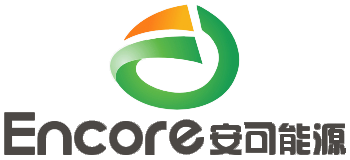- English
- Español
- Português
- русский
- Français
- 日本語
- Deutsch
- tiếng Việt
- Italiano
- Nederlands
- ภาษาไทย
- Polski
- 한국어
- Svenska
- magyar
- Malay
- বাংলা ভাষার
- Dansk
- Suomi
- हिन्दी
- Pilipino
- Türkçe
- Gaeilge
- العربية
- Indonesia
- Norsk
- تمل
- český
- ελληνικά
- український
- Javanese
- فارسی
- தமிழ்
- తెలుగు
- नेपाली
- Burmese
- български
- ລາວ
- Latine
- Қазақша
- Euskal
- Azərbaycan
- Slovenský jazyk
- Македонски
- Lietuvos
- Eesti Keel
- Română
- Slovenski
- मराठी
- Srpski језик
Power battery to refresh the electric vehicle industry?
2022-12-03
Japan's Nikkei Shimbun reported on December 9 that Toyota is developing a solid state battery, which can run 500 kilometers once charged, and takes 10 minutes to fully charge, at least two-thirds less than traditional electric vehicles. Toyota is expected to become the world's first manufacturer of solid state battery vehicles in mass production, and will launch prototype vehicles next year.
In addition to Toyota's news, QuantumScape, a company jointly invested by Volkswagen and Bill Gates, also released a new solid state battery technology, which can charge 80% in 15 minutes, increase the energy density by 50%, and withstand a wider range of temperatures, as low as - 30 ℃. Volkswagen said that its goal is to have a new battery production line by 2025.
So, what's the difference between solid state battery and traditional battery?
Traditional lithium battery: it is composed of positive electrode, diaphragm and negative electrode, and then filled with electrolyte.
Solid state battery: The lithium battery uses solid electrolyte, and the electrolyte material largely determines the performance of the solid state lithium battery.
The main difference between the two is that the electrolyte in the solid-state battery is solid, which means that the medium for lithium ion migration between the positive and negative electrodes changes from liquid to solid. With the continuous upgrading of cathode materials, solid electrolyte can make better coordination, which is conducive to improving the energy density of the battery system.
Advantages of solid state battery.
Due to the use of solid electrolyte, compared with traditional lithium batteries, solid batteries have the characteristics of non combustion, high temperature resistance, non corrosion, non volatilization, low fire risk and high energy density.
Industrialization of solid state battery.
Solid state battery is considered as the last solution to the anxiety of battery energy density and endurance. Solid state battery has many advantages, but it has not been widely used due to its high cost and low production capacity.
The commercialization of solid state batteries may not be as fast as people think. In 2019, Ningde Times said that it was committed to the development of all solid state batteries and had produced samples, but it would take 10 years for them to be fully commercialized, which means they are far from large-scale production.
The application schedule of solid state battery is predicted.
-2021 will be the incubation period of the solid-state battery market. Relevant product planning and research and development will be carried out, and the market will still be dominated by ternary batteries.
-From 2021-2025, solid state batteries will enter the initial stage of application, with the battery energy density reaching 300-500Wh/kg, and a small number of high-end electric vehicles will be equipped with solid state batteries.
-From 2025 to 2030 or even longer, the market will be truly mature, the energy density of solid-state batteries will exceed 500Wh/kg, and large-scale production will be truly popular.
In general, all solid state batteries, especially those for high current applications such as automobiles, are far away from the scale of industrialization and need further upgrading and cost control.
Why do some people say mass production is imminent, while others say it will take 10 years?
As you may guess, the "solid state batteries" currently advertised for mass production are not all solid state batteries, but semi-solid state batteries.
Semi solid batteries usually have a solid electrolyte on one electrode and a liquid electrolyte on the other. Many people experimenting with semi-solid batteries are for quick commercial use. For example, Toyota has set its sights on developing all solid batteries for trams, but says it will gradually start with "semi-solid" batteries.
When Ning De said that it would take 10 years for large-scale production, he meant all solid state batteries, and that was the goal.
Will Toyota and QuantumScape's solid-state batteries pose a threat to startups?
From the perspective of solid state battery development.
The battery technology innovation in European and American countries is mainly led by startups. Because small enterprises are responsible for innovation in European and American countries, and large enterprises solve innovation problems through mergers and acquisitions, there is no need to explore extensively.
Japan is dominated by traditional automobile and machinery enterprises, because Japanese traditional enterprises are very forward-looking and want to try any new technology.
China entered the field of solid state battery relatively late. However, we believe that solid state batteries are not as impressive as the media described. Even if there is a gap of 1-2 years in research and development, it is not enough to overturn the position of the head power battery company.
First, as lithium batteries become mainstream, they will improve rapidly. The current liquid version, or, will continue to improve, especially if you get 30% improvement every year, 5 years, 10 years, the improved battery efficiency will be similar to the solid-state battery.
Second, innovative solid-state battery technology can easily be integrated into enterprises. Solid state battery is also the route of lithium battery. On the route of lithium battery, these improved technologies can easily be gathered by leading enterprises. For the breakthrough of new battery technology, the threshold and risk of building a factory are very high, so many people will sell the technology to leading enterprises, which can rapidly expand the scale. The relative technology gap of solid state battery is small, and the advantage of large batch is obviously more important in the commercialization of solid state battery.
In addition to Toyota's news, QuantumScape, a company jointly invested by Volkswagen and Bill Gates, also released a new solid state battery technology, which can charge 80% in 15 minutes, increase the energy density by 50%, and withstand a wider range of temperatures, as low as - 30 ℃. Volkswagen said that its goal is to have a new battery production line by 2025.
So, what's the difference between solid state battery and traditional battery?
Traditional lithium battery: it is composed of positive electrode, diaphragm and negative electrode, and then filled with electrolyte.
Solid state battery: The lithium battery uses solid electrolyte, and the electrolyte material largely determines the performance of the solid state lithium battery.
The main difference between the two is that the electrolyte in the solid-state battery is solid, which means that the medium for lithium ion migration between the positive and negative electrodes changes from liquid to solid. With the continuous upgrading of cathode materials, solid electrolyte can make better coordination, which is conducive to improving the energy density of the battery system.
Advantages of solid state battery.
Due to the use of solid electrolyte, compared with traditional lithium batteries, solid batteries have the characteristics of non combustion, high temperature resistance, non corrosion, non volatilization, low fire risk and high energy density.
Industrialization of solid state battery.
Solid state battery is considered as the last solution to the anxiety of battery energy density and endurance. Solid state battery has many advantages, but it has not been widely used due to its high cost and low production capacity.
The commercialization of solid state batteries may not be as fast as people think. In 2019, Ningde Times said that it was committed to the development of all solid state batteries and had produced samples, but it would take 10 years for them to be fully commercialized, which means they are far from large-scale production.
The application schedule of solid state battery is predicted.
-2021 will be the incubation period of the solid-state battery market. Relevant product planning and research and development will be carried out, and the market will still be dominated by ternary batteries.
-From 2021-2025, solid state batteries will enter the initial stage of application, with the battery energy density reaching 300-500Wh/kg, and a small number of high-end electric vehicles will be equipped with solid state batteries.
-From 2025 to 2030 or even longer, the market will be truly mature, the energy density of solid-state batteries will exceed 500Wh/kg, and large-scale production will be truly popular.
In general, all solid state batteries, especially those for high current applications such as automobiles, are far away from the scale of industrialization and need further upgrading and cost control.
Why do some people say mass production is imminent, while others say it will take 10 years?
As you may guess, the "solid state batteries" currently advertised for mass production are not all solid state batteries, but semi-solid state batteries.
Semi solid batteries usually have a solid electrolyte on one electrode and a liquid electrolyte on the other. Many people experimenting with semi-solid batteries are for quick commercial use. For example, Toyota has set its sights on developing all solid batteries for trams, but says it will gradually start with "semi-solid" batteries.
When Ning De said that it would take 10 years for large-scale production, he meant all solid state batteries, and that was the goal.
Will Toyota and QuantumScape's solid-state batteries pose a threat to startups?
From the perspective of solid state battery development.
The battery technology innovation in European and American countries is mainly led by startups. Because small enterprises are responsible for innovation in European and American countries, and large enterprises solve innovation problems through mergers and acquisitions, there is no need to explore extensively.
Japan is dominated by traditional automobile and machinery enterprises, because Japanese traditional enterprises are very forward-looking and want to try any new technology.
China entered the field of solid state battery relatively late. However, we believe that solid state batteries are not as impressive as the media described. Even if there is a gap of 1-2 years in research and development, it is not enough to overturn the position of the head power battery company.
First, as lithium batteries become mainstream, they will improve rapidly. The current liquid version, or, will continue to improve, especially if you get 30% improvement every year, 5 years, 10 years, the improved battery efficiency will be similar to the solid-state battery.
Second, innovative solid-state battery technology can easily be integrated into enterprises. Solid state battery is also the route of lithium battery. On the route of lithium battery, these improved technologies can easily be gathered by leading enterprises. For the breakthrough of new battery technology, the threshold and risk of building a factory are very high, so many people will sell the technology to leading enterprises, which can rapidly expand the scale. The relative technology gap of solid state battery is small, and the advantage of large batch is obviously more important in the commercialization of solid state battery.



